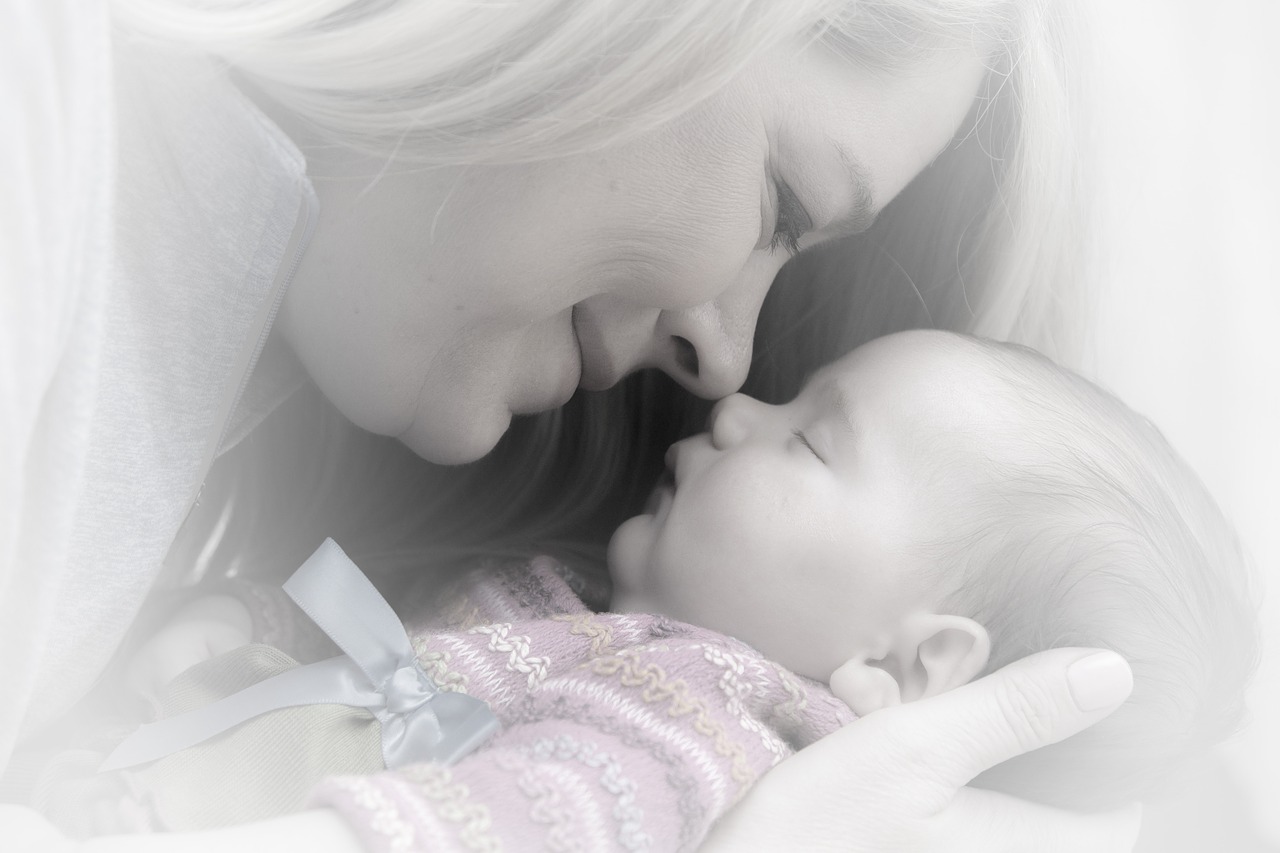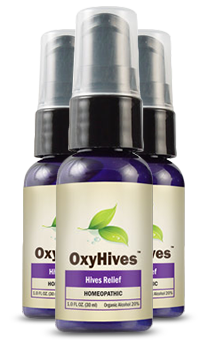Let me guess:
Since the baby was born, you’ve been suffering from horribly itchy and painful hives.
You hope these unbearable skin rashes are going to magically disappear one day, however they continue to spread rapidly all over your body.
You hate them.
You are dying for a cure, and you are looking for solutions that can provide immediate relief – for you to at least sleep a little better through the night.
So what are the treatment options to get rid of these massive postpartum hives symptoms, including if you are breastfeeding?

Why You’re Suffering from Hives After Pregnancy?
Experiencing postpartum hives can be a harrowing experience for many women. Hives, in this case, can appear on any part of the body. Some patients have reported the welts appearing around the lower abdomen, on the feet and around the breasts. Postpartum hives is especially worse in women who are just recovering from the strain of pregnancy.
Why do women gets hives after pregnancy and giving birth?
Studies have attributed this trend to the increased chances that a body which has just undergone pregnancy is prone to the allergic triggers that cause hives.
Hormone changes can cause your skin to be more sensitive to allergens that trigger hives rash.
For example, have you received flowers from friends and relatives who visited you after giving birth? There were cases that the new mother’s hives symptoms improved significantly after the flowers were removed from the house, suspecting the body had allergic reaction to pollen.
Postpartum Hives Treatment and Symptoms Relief
Cases of postpartum hives can be very discomforting, especially coupled with the responsibilities of breastfeeding. It is important that treatment should be started as soon as possible to limit the extent of an outbreak.
Here are 9 effective methods that can be used for your postpartum hives treatment and relief, so that you can spend more quality time with your baby.
#1. Antihistamine Medication
Dealing with postpartum hives and breastfeeding requires the attention of a doctor when seeking a treatment for postpartum hives. Antihistamines are the common drugs prescribed for patients with hives in this case. A certified doctor should be able to advise you if it is safe to take an antihistamine or other related drugs to reduce the disturbing effects of hives.
If you have been cleared to use antihistamines for your hives, the options will be among popular oral Antihistamines like Cetirizine (Zyrtec) and Loratadine (Claritin). These Antihistamines medications are also available over the counter without prescription, as shown below.
Breastfeeding mothers would be properly instructed on the dosage they should take to treat hives while keeping the baby protected, when some antihistamines are not even recommended.
For example, the package label of Zyrtec clearly states: “If Breastfeeding: Not Recommended“.
Some patients report more severe symptoms of hives at night. This includes itchy skin after giving birth. In cases like this, dermatologists usually give the patients antihistamines like Chlorphenamine, which has sedating tendencies to help the patient rest well at night.
Depending on the case of postpartum hives, some oral steroids like Prednisone can be given to the patient for a short period not exceeding 3 days.
#2. Coping with Post-Pregnancy Stress
Stress takes its toll on the human body. Women who have just gone through a pregnancy are most likely to experience a lot of stress which can cause a break out in hives. There is an increase in cortisol produced in the body when we go through stress.
Coping with hives after pregnancy is best managed when the woman can get enough sleep. This will reduce stress and any form of anxiety that might have developed.
Simple tips for nursing mothers to prevent stress include the following:
- It is important for nursing mothers to get enough sleep. Your baby should have a sleeping pattern; adopt this pattern so you can get enough sleep too.
- Make arrangements with friends and family to support you and your family with running errands, shopping, cooking etc.
- Engage in activities that make you feel happy and relaxed, like go for walks, read books, etc.
#3. Homeopathic Remedies
Homeopathy, a medical practice and alternative medicine based on the idea that the body has the ability to heal itself, was founded in 1796 by Samuel Hahnemann in Germany and has been widely practiced nowadays after gaining popularity over the years.
In case you are allergic to Antihistamine drugs that contain ingredients like Hydroxyzine, or you are looking for natural complementary or alternative medicine (CAM) for hives treatment, then homeopathic solutions like Apis Mel 30 can be used to alleviate the itching and discomfort caused by postpartum hives.
 A leading OTC homeopathic hives relief product is Oxyhives. It contains all-natural ingredients like Apis Mellifera (honey bee) and Arnica Montana flower that have been used for decades as natural medication to cure hives.
A leading OTC homeopathic hives relief product is Oxyhives. It contains all-natural ingredients like Apis Mellifera (honey bee) and Arnica Montana flower that have been used for decades as natural medication to cure hives.
Once Oxyhives topical homeopathic solution is applied to skin, the natural ingredients will provide instant relief on intolerably hives symptoms by fighting against itchiness, pain, swelling, redness, and irritation.
>> Visit Oxyhives official website here to learn more
#4. Application of Cold Compress
Hives is caused by an irritation of the blood vessels. Applying a cold compress on the affected parts of the skin will subdue the blood vessels, hence reducing the discomfort caused by hives. A cold temperature hinders the production of histamine and many patients have reported a reduction in the itching when a cold compress was used on their hives.
Making a cold compress is easy; simply put some cubes of ices in a cloth. Please note that ice cubes should not be applied directly on the part of the skin affected by hives.
#5. Topical Anti-Itch Ointment Applications
There are ointment that can be applied on hives to reduce the itching.
These creams can be used based on a dermatologist’s prescription for best results, while anti-itch creams for hives that are available over the counter include Puriya Cream, Thena Cream, Era Organics Cream, and ResQ Organics Cream.
Here are useful tips and experience from some new mothers (who breastfeed):
- Try to avoid applying topical cream on nipples.
- Begin pumping after day time feedings to up milk supply.
- Breastfeed the baby first and then apply the cream so that the baby had minimal exposure.
#6. Have an Oatmeal Bath
You can either choose to buy the already prepared oatmeal for this purpose or make it yourself. Making it is easy, put some oatmeal in a cloth and soak it in water until the essential compounds you need have been extracted from the oatmeal. Mix the collected solution with more water to have your bath. You can also choose to use a food processor to blend the oatmeal into a fine powder for your bath.
#7. Avoid Hot Showers and Hot Baths
Bathing with hot water can cause further discomfort for a person who has hives. Until your hives have cleared off, please avoid using very hot water for your bath.
#8. Wear Loose Clothes
The area of your skin affected by postpartum hives will be further irritated if it constantly comes in contact with the clothes you wear. It is best to wear loose fitting clothes to reduce the itching.
#9. Seek Medical Assessment to Determine the Cause of Your Hives
Postpartum hives might just be another case of hives that would clear off after a while or it might reoccur due to certain triggers. It is important to seek medical attention to investigate the cause of your hives.
The medical personnel will most likely carry out a series of tests to confirm that there is no underlying illness and to determine if you are reacting to any allergen. In most cases, it might just be as a result of the hormonal changes your body went through because of pregnancy, but if there are other reasons, they would be identified.
If it is discovered that you are reacting to certain things, then adequate steps should be taken to avoid those triggers so you don’t experience a recurrence.
- Common triggers of hives include insect bites, exposure to pollen, contact with pets, plants etc. if any of these triggers are identified as the cause of your hives, you should ensure they are nowhere close to you or your baby.
- Some patients also react to drugs, some foods or experience hives due to viral or bacterial infections. Extreme heat or physically rubbing on parts of the skin could also irritate the blood vessels to cause a hives breakout.
Check out the excellent video below by Dr. Robert Overholt to learn more about causes of hives, and what’s your role in determining the cause of your postpartum hives.
Breastfeeding with Postpartum Hives After Pregnancy
We all have different bodies. Some women might require a longer time to recover from a pregnancy than others. Post pregnancy periods are also characterized by a lot of activities such as caring for the baby, breastfeeding and minor domestic chores.
A new mother who doesn’t have an extra support from friends and family will have a lot of work to do. She might not be able to get enough rest which is important for her speedy recovery.
As revealed by the American Pregnancy Association, women may be hesitant to breastfeed with the concern that it may require more energy and add to your fatigue, especially when you are battling your hives nightmare.
If you are in this situation, here are some tips:
- Sitting or lying down to breastfeed can help ensure you get the extra rest you need.
- Avoid applying anti-itch cream topically on your nipples.
- Learn how to pump and store breast milk that can make you less stressful.
- Consult doctor if you have concern that the ingredients of any hives medications may end up in your breast milk.